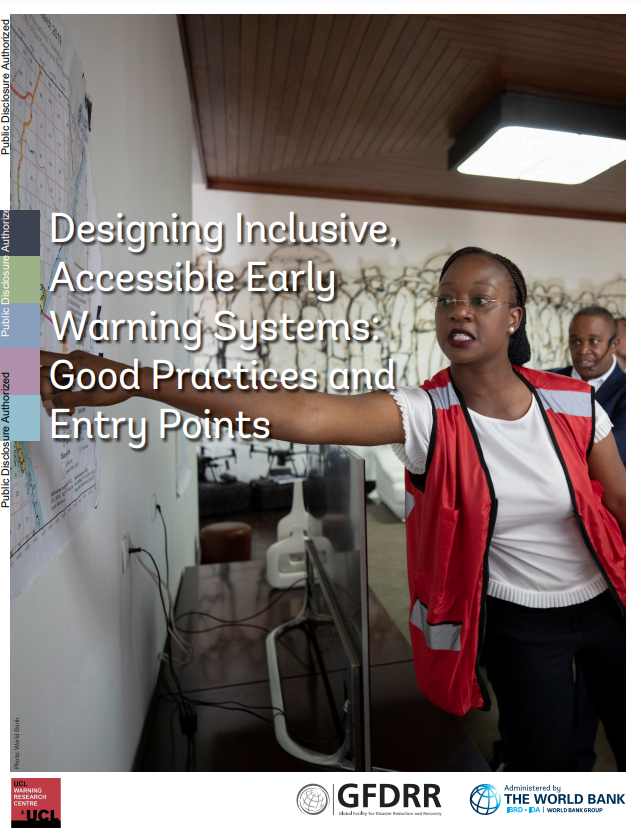This report presents key lessons and areas of good practice from specific examples, along with recommendations and entry points for inclusive, accessible early warning systems (EWS). It is aimed at development practitioners, especially World Bank staff, working with communities and governments to provide evidence-based approaches to enhance inclusion of different social groups in EWS, depending on the local context. It is not intended to be a comprehensive overview of a robust, effective EWS, but rather to high lighten try points for the inclusivity components of multi-hazard impact-based EWS. The report builds on the premise that adopting pragmatic, contextually tailored approaches to design and implementation of EWS produces better, more effective and inclusive outcomes and reaches more-diverse populations than one-size-fits-all models.
Designing Inclusive, Accessible Early Warning Systems: Good Practices and Entry Points (English)
May 1, 2023

